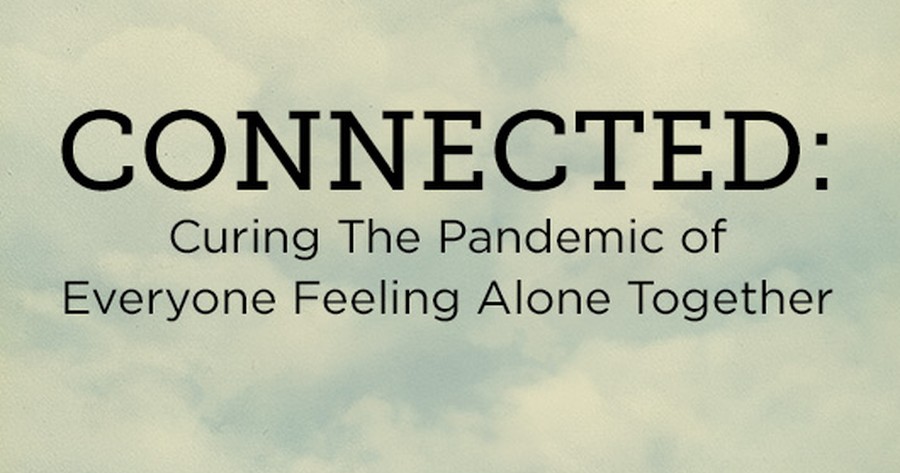Polishing Up the Golden Rule
In Matthew 7, Jesus is teaching important principles about our relationships when He drops this little gem, "So whatever you wish that others would do to you, do also to them, for this is the Law and the Prophets" (v. 12).
We've come to identify this teaching as the Golden Rule. Later in Matthew, Jesus presented this same concept in a slightly different wrapper by saying that loving others as yourself is the second greatest commandment (Matt. 22:39).
We've got to learn to love others well without constantly wondering, What's in this for me?
These verses urge us to love others in the same way we want to be loved, but they are not a guarantee that the favor will be returned. The Golden Rule is not an invitation to keep score.
When it comes to my relationships, I tend to think thoughts like these:
- I was nice to you today, so you better always be nice to me.
- I forgave you, but you better not ever hurt me again . . . or else.
- I helped you, so you better help me.
But this is not the spirit of the Golden Rule. And let's face it; it doesn't make for great relationships. If we want to know and be known, we need to stop keeping score. If we want to move toward worrying less about having the right friends and put effort toward loving like Jesus did, we've got to learn to love others well without constantly wondering, What's in this for me?
When Jesus gives us the second greatest commandment, what is He really commanding?
John Piper put it this way, "He is commanding that our self-love, which has now discovered its fulfillment in God-love, be the measure of the content of our neighbor-love. Or to put it another way, he is commanding that our inborn self-seeking, which has now been transposed into God-seeking, overflow and extend itself to our neighbor."
Other's Esteem
Jesus didn't ask us to love others extravagantly simply so the neighborhood can hold hands and sing "Kumbaya." It's not about warm fuzzies. It's about giving teeth to our faith. It's about letting the abundant love God has demonstrated toward us overflow and impact others instead of keeping it bottled up and to ourselves.
When it comes to our relationships, this is a mark that so many of us miss.
In a culture completely obsessed with feeling good, we've been raised with the idea that our self-esteem should be fed into. We look to our relationships to satisfy our craving for constant ego strokes. This is not the formula that Jesus modeled or taught.
Paul was urging Christians in Philippi to be encouraged by Christ's example when he penned these words: "Do nothing from selfish ambition or conceit, but in humility count others more significant than yourselves" (Phil. 2:3).
Perhaps it's time we outgrow the notion that the purpose of our relationships is to provide a steady drip of feel-good fuel for our delicate self-esteem.
Perhaps it's time we outgrow the notion that the purpose of our relationships is to provide a steady drip of feel-good fuel for our delicate self-esteem.
As I've wrestled with loneliness, I've learned that there's more on the line than simply having great friends. If we can feel desperately lonely as wives, daughters, sisters, and friends, the antidote must be found in the quality of our relationships, not the quantity. The Bible teaches a paradoxical truth. The depth and quality of our relationships hinge on what we give, not what we get.
I don't do math, but when we look at Jesus' teachings and examples, it becomes clear why our relationship equations so rarely add up. We tend to plug the factors in this way:
Me + relationships built on my self-esteem = shallow connection.
We need a new equation that looks like this:
Me + relationships built on others' esteem = deep connection.
No ATMS
True, deep connection, the kind that can keep us tethered and hemmed in, is born from sacrifice, not self-esteem. There is no room for an ATM mentality among the people of God.
If we are going to vaccinate ourselves and others against the pandemic of loneliness, we must love like Jesus loved. We've got to connect with people who have nothing to offer us. We should befriend the undesirable and cast out. We need to look at our relationships and ask what we can give instead of what we can get.
An Unexpected Parachute
Loving others wholeheartedly can feel like jumping without a parachute. There are no guarantees that they will love us back or be able to meet our relational needs. I think we should jump anyway . . . it's the only way to find true connection. But as I looked in God's Word for the answers to my loneliness, I found that God does offer a parachute. He is the parachute.
Deuteronomy 31:8 promises. "It is the LORD who goes before you. He will be with you; he will not leave you or forsake you. Do not fear or be dismayed."
- Do you feel lonely because no one is thinking about you? The truth is, since before you were even born, God knew you (Ps. 139:13–16).
- Do you feel like no one notices how hard life can be? God keeps a record of every heartbreak (Ps. 56:8).
- Do you feel friendless? Betrayed? Walked out on? The God who created everything out of nothing, who always was and always will be, whose name is Faithful and True, calls you His friend (John 15:15). You can never accurately say you are friendless. God's offer for relational intimacy always stands.
So, yes, knowing and being known is risky, but God is able to meet our deep need for connection, and through His Word, He shows us how to let that ripple out into our relationships with others.




Join the Discussion